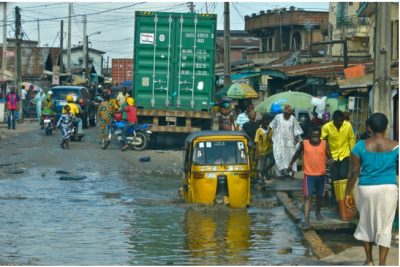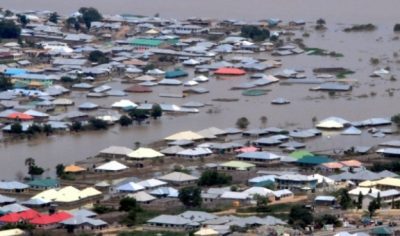
For every business to flourish in any environment, movement of people and goods should be an easy one. A Good environment free from flood with a nice road network also help to save items from perishing or damage.
Nigeria, a West African country and possibly one of the largest markets in the world despite the favourable market terrain face many challenges in areas of flooding and bad road network which affects production.
The Director General of Nigeria Hydrological Services Agency (NIHSA), Mr. Clement Nze last month gave a warning at a press briefing in Abuja that the current flood level seen in Niamey, Niger Republic is a dangerous threat to Nigeria.
Since June 2020, all the states of the federation have been affected by several degree of flooding which have had serious economic effect in the country especially in areas of agricultural products.
The constant rise in water level and bad road not only affect business but endangers the lives of citizens especially those living in areas close to Rivers.
In September 2020, heavy rains struck Jigawa State in Northern Nigeria. Lives were lost and about 51000 families displaced. Reports had it that wide areas of farmlands were washed away with crops worth billions of naira lost.

flooding in Jigawa State
Imo State, remain one of the states in Nigeria battling with flood as a result of the poor road network and poor planning in housing scheme. Most houses within the state capital are built on water ways and most of them are blocked. Relatively within Owerri, the State capital, the state cannot boast of having proper network.
Businesses are on hold during hours of rain and probably few hours after the rain as the streets are flooded with water. Many market areas within the state have poor road networks that make goods scarce or expensive.
On Sunday 6th September 2020 in Imo State, about 10 families living at Trinity Street in Akwakuma in Owerri, were trapped in their homes because of heavy downpour. There was a landslide that led to gully erosion.
Flooding since the beginning of the year has washed away at least two million tons of rice in Nigeria. This is not a good thing for the West African nation, although the country remains the largest importer of the grain.
Though flooding may be caused by the change in climatic condition, most flood cases have been as a result of poor road network within the country.
Roads are poorly constructed with poor drainage systems. In Hadel, a street in Orji Imo State, the road did not last more than two months after construction. Cars are trapped there on daily bases and people’s businesses threatened by flood.
Lagos state, the commercial city of the country in August predicted impending heavy rainfall between August and October 2020. Earlier this year, Nigeria Meteorological Service (NiMET) predicted that Lagos will encounter a rainy season of 240-270 days, with prediction at 1,750mm.
Stakeholders have noted that this is not good for a country who survives more on Agricultural products. The constant flooding in the north were most of the food items are cultivated continues to affect production and increase in price.
Over the weekend, the President Muhammadu Buhari took stock of the flood situation within the country and have asked the various teams to take necessary action that will ensure it is controlled.









